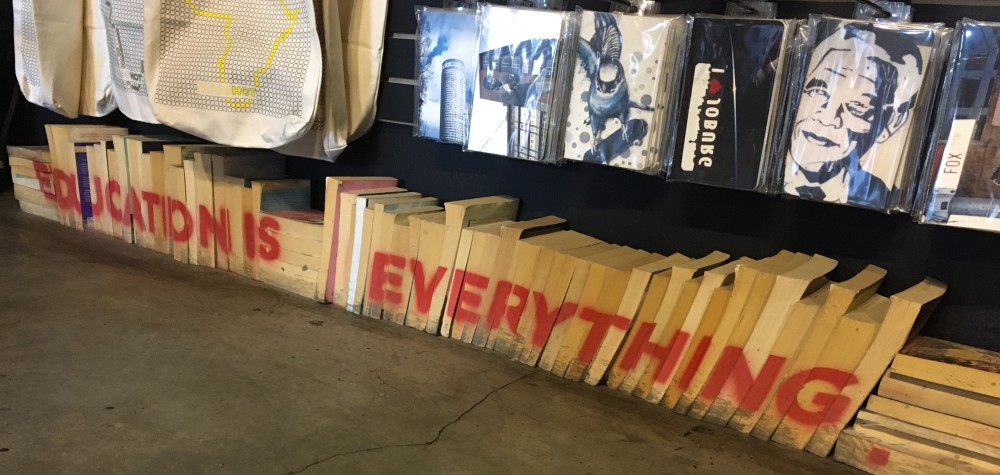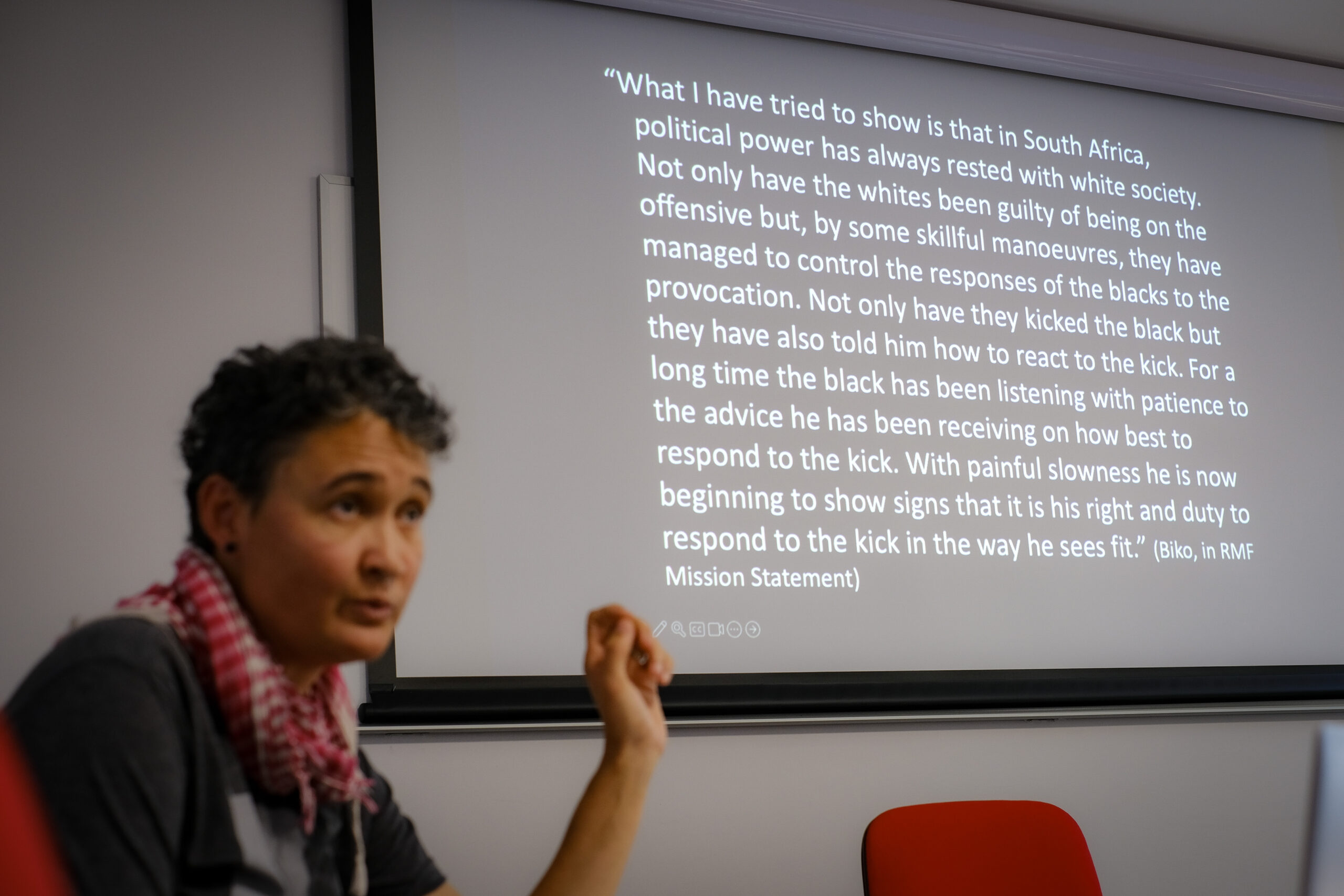Leigh-Ann Naidoo, with Adult and Community Education colleagues
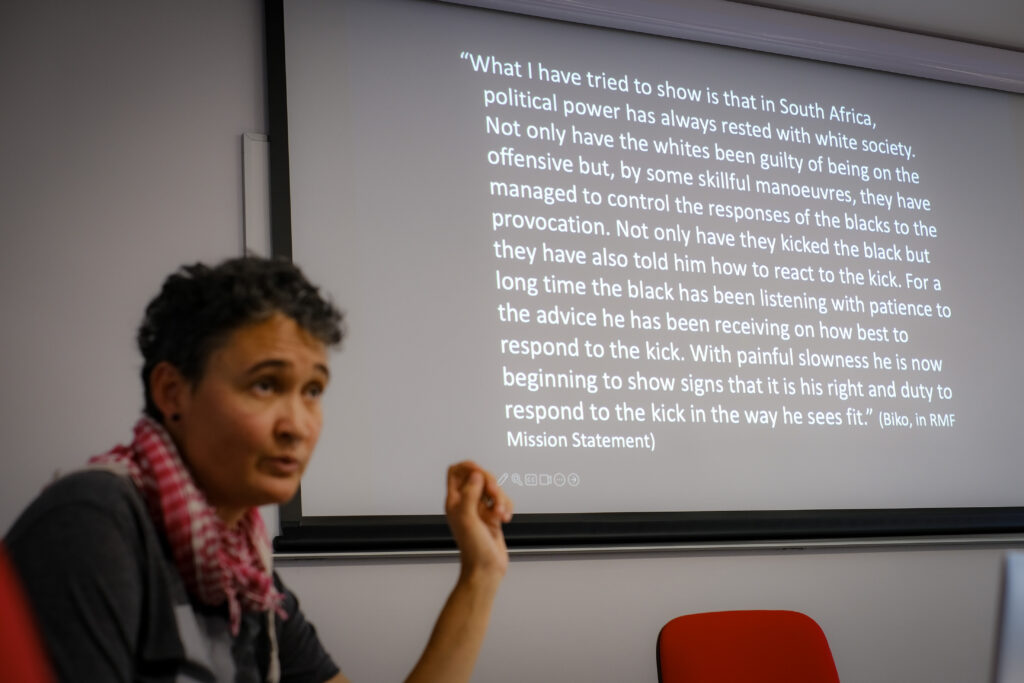
To start our academic exploration of South Africa we began our journey at the University of Cape Town (UCT). We were greeted by three faculty from UCT, including a Dean from the university and two faculty from the School of Education. We had the opportunity to listen and learn from them. In a series of three talks, we explored the question, “How has higher education served as an incubator for social change?”
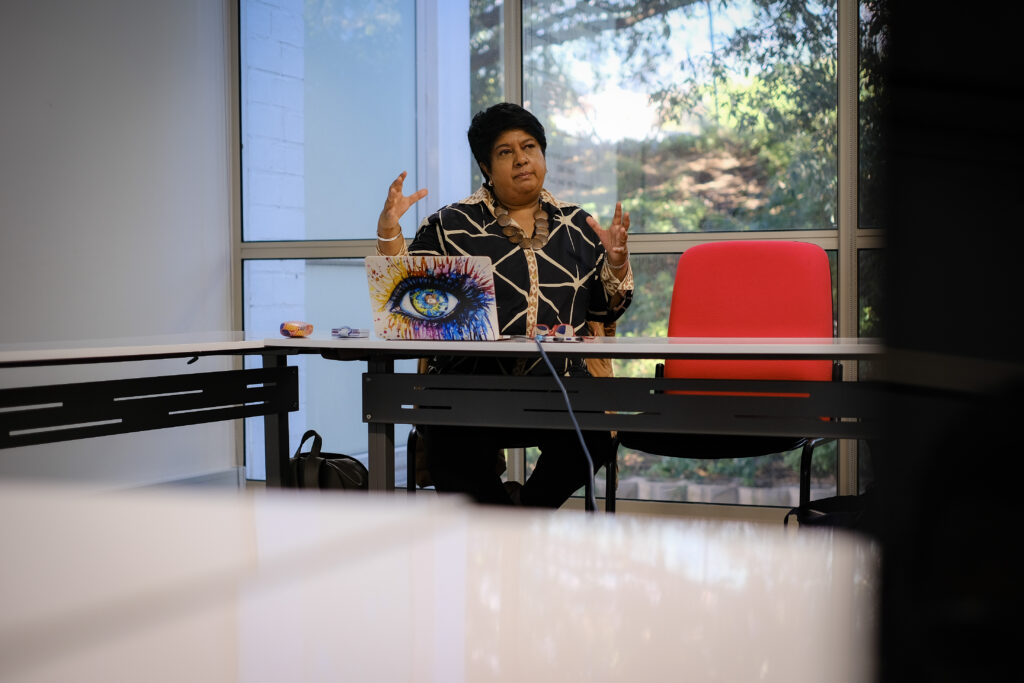
We enjoyed three different lectures from UCT faculty who covered relevant South African higher education issues. One topic, amongst others, appeared throughout the three talks–the 2015 Rhodes Must Fall (RMF) protests and the subsequent Fees Must Fall (FMF) protests on campuses across South Africa. Our first lecture was delivered by Dr. Behari-Leak. The conversation was centered around the university as an institution and troubling the action component of decoloniality. During Dr. Behari-Leak’s lecture, we discussed how to humanize people within higher education while existing in a post-human world. This encouraged us to recognize that there must be a watch of trends of social movements, which is different from surveillance and policing. We also learned that for deep change to come about there must be a capitalization and a move to push things to a personal, spiritual, and collective point; and that allyship is not the same thing as comradeship.
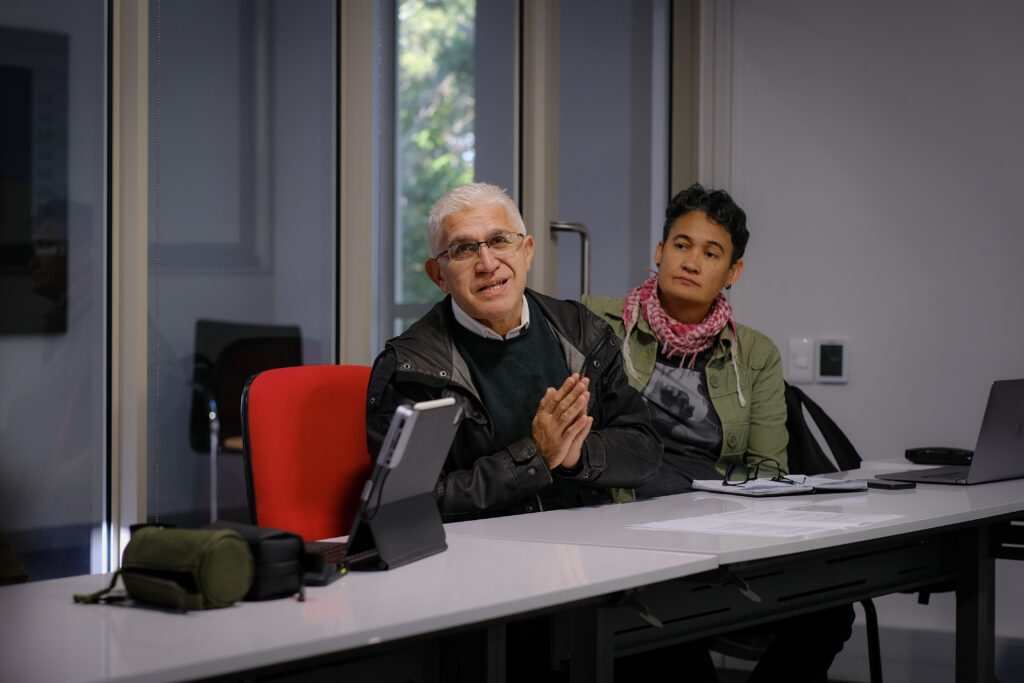
In our second lecture, Dr. Badroodien challenged us to understand that studying higher education is being interested in bringing about greater social change. Before we could grasp the gravity and impact of the 2015 social movements, we also had to think about the history of South Africa and reconsider the purpose of educating educators. Dr. Badroodien reminded us that our purpose is to interrupt and disrupt. We learned about the higher education organizing in Apartheid South Africa; students were full participants in the fight against it and the subsequent victories and losses in post-apartheid. We ruminated on the idea that apartheid was a willful separation of human beings. What needed to be uncovered were the questions about who has the right to exist and who does not have the right to exist. As students enrolled in U.S. institutions, the context around understanding the key seminal moment of Nelson Mandela’s release was so important for us to absorb; including, that South Africa was unprepared but ready and willing to accept the challenge of a post-apartheid South Africa. There was a thoughtful bridge between lectures, Dr. Badroodien and Dr. Naidoo both considered how higher education is in relation to other spaces. Dr. Naidoo shared the student playbook for moving action across campuses. We were able to follow the path of the public action timeline of the student demands for RMF.
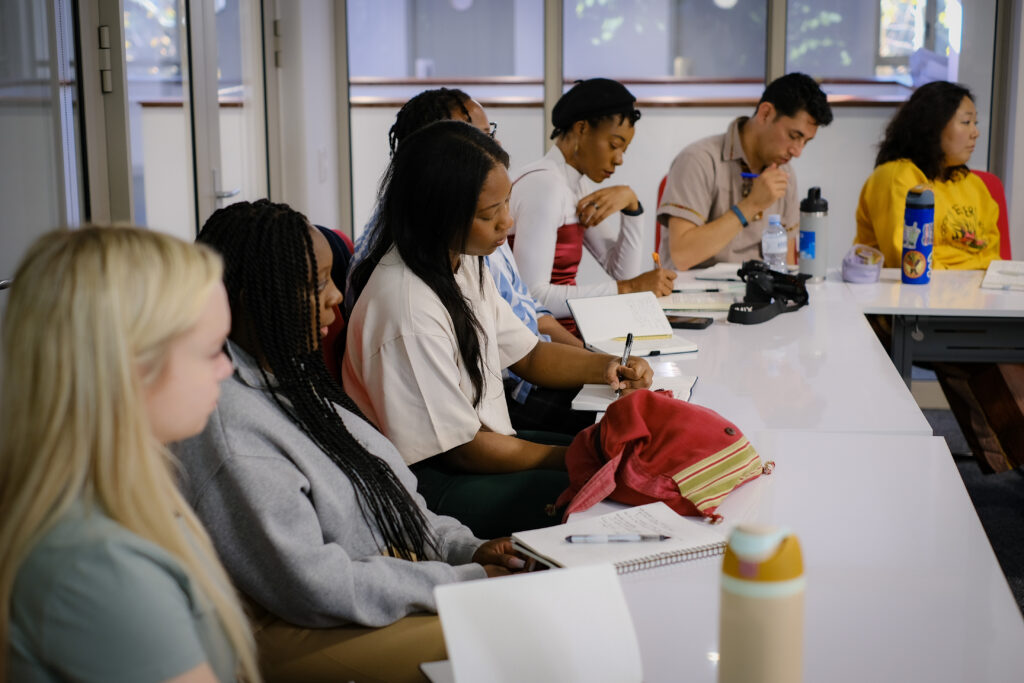
The third lecture shared more details surrounding Cecil John Rhodes, colonizer, misogynist, and an architect of apartheid. This lecture also mapped how the RMF movement led to the FMF, a social movement that extended beyond the university and responded to the inaccessibility of higher education. This is where the pieces to why exactly Rhodes needed to fall, in the form of the removing of the statues and monuments of apartheid. We returned to the goal of humanizing higher education and once again attempted to humanize all those within the institution of higher education. Throughout the day, but especially in Dr. Niadoo’s lecture, we covered themes of disrupting norms, radical practice, expanding the boundaries of the classroom, and thought about how power operates in higher education institutions.
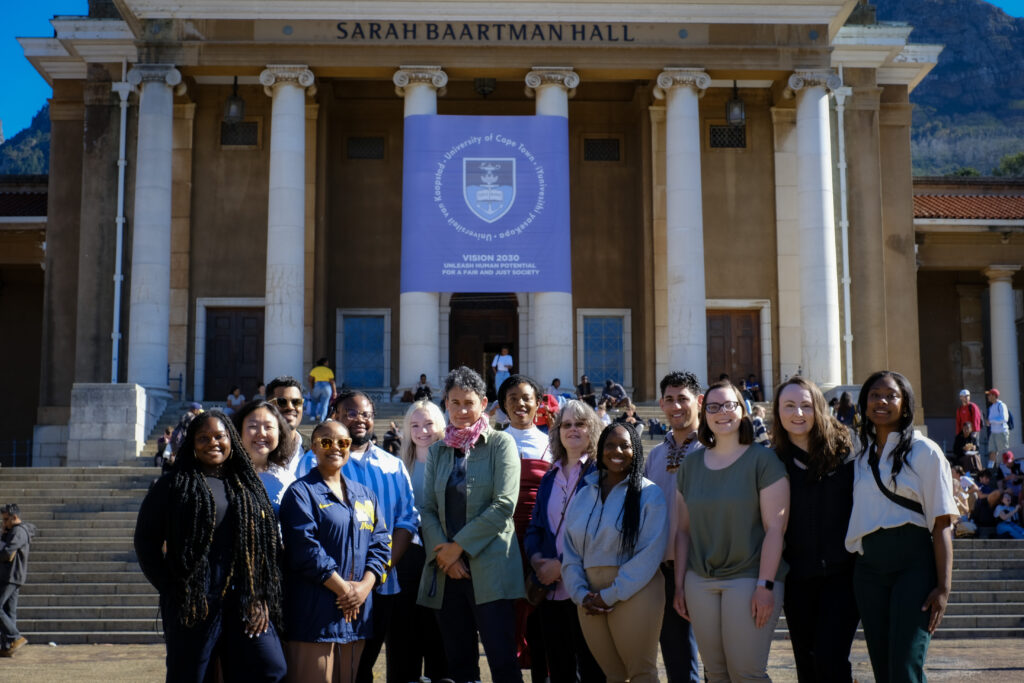
It was both an informative and intellectually stimulating visit to UCT. The kindness and honesty we experienced set a tone for the rest of the trip. We were treated with hospitality and frankness and a depth of thought around protest organizing and student movements in South Africa that could not be fully conveyed, unless in person. It was an honor and pleasure to be hosted by and to learn from the UCT School of Education. Overall, this was an illuminating opportunity to experience another school of education’s global context for why they have chosen the discipline of higher education. It was a first day for the books!
–by Laura Lee Smith, CSHPE doctoral candidate
